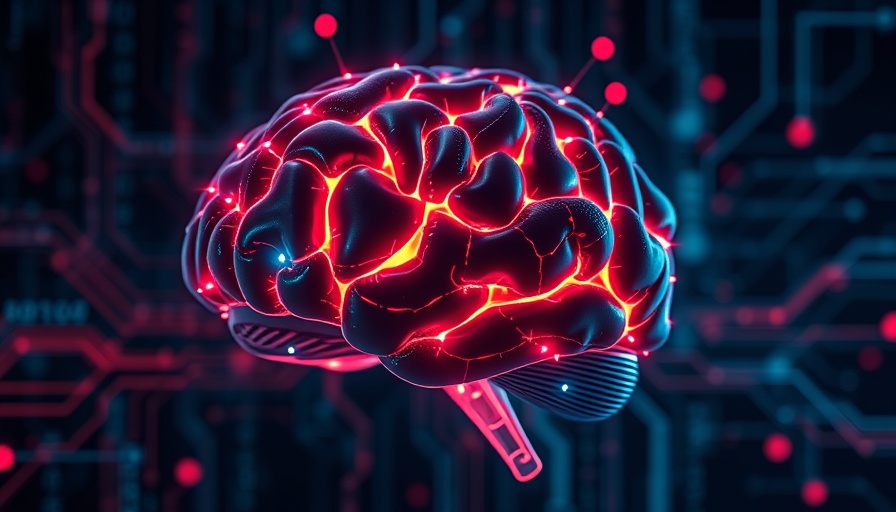
Digitally Understanding the Brain: A Groundbreaking AI Innovation
The frontier of neuroscience is witnessing an intriguing leap with the advent of artificial intelligence (AI), particularly in creating 'digital twins' of brain structures. Recent research from Stanford Medicine reveals how a sophisticated AI model was developed to simulate the mouse visual cortex, thus offering scientists a revolutionary tool for understanding neuronal responses to visual stimuli.
Simplifying Complex Neuroscience Experiments
Imagine a pilot using a flight simulator to practice maneuvers; similarly, scientists can leverage AI to conduct experiments on a virtual replica of the brain. This new study presents a digital twin that accurately predicts neuronal responses based on expansive datasets collected from the visual activity of real mice watching movies. Such innovation can simplify intricate experiments and heighten the efficiency of research. As noted by Andreas Tolias, PhD, a Stanford Medicine professor of ophthalmology and senior author, an accurate brain model enables the conduction of numerous experiments, allowing researchers to focus on the most promising findings for real-world testing.
Broadening Horizons: Generalization Beyond Training
The AI model stands out because of its capability to generalize beyond the original data it was trained on. This means that unlike previous models restricted to specific stimuli, this new model can anticipate neuronal reactions to varied visual inputs, making it a versatile tool for exploration. Tolias emphasizes that this robust generalization mirrors a fundamental aspect of intelligence, thus pushing the bounds of what such AI models can achieve.
Training with Mouse Movies: A Unique Approach
The training process of the AI involved recording brain activities of mice as they watched action-packed clips—an approach designed to mimic natural visual scenarios. The challenges of creating realistic stimuli were acknowledged, as filmmaker-created content directed towards mice is limited. Yet, the thrilling sequences of films like 'Mad Max' have proven effective in eliciting significant responses within the mice's visual systems, enabling researchers to collect comprehensive data for training.
The Implications for Neuroscience and AI Development
This breakthrough holds profound implications for both neuroscience and the field of AI. By utilizing a digital twin, researchers can conduct virtual experiments without the ethical and logistical limitations that govern live animal testing. The insights gained through this technology could lead to enhanced understanding of human cognition and vision, opening new doors for therapies related to visual disorders.
Looking Forward: What This Means for the Future of AI in Healthcare
As AI continues to integrate into various fields, the potential for improving patient outcomes becomes increasingly tangible. Given the increasing complexity of societal health challenges, tools like digital twins could radically change approaches to treatment and rehabilitation. The parallel progression in AI and healthcare indicates that other areas, such as mental health or chronic disease management, could eventually benefit from similar models, reshaping the landscape for patient care.
What's Next in Digital Twins?
The concept of digital twins extends beyond just brain applications. As technology evolves, we may soon see 3D digital replicas of both human and animal organs that can be used to test various treatments and unrelated health conditions. This could drastically reduce the need for clinical trials, providing a safer, quicker alternative to human testing.
Understanding Your Role in This Evolution
As residents of Dallas and surrounding areas, it’s essential to engage with advancements in technology that may shape future healthcare practices. Being informed about how artificial intelligence can enhance research and potentially impact local healthcare services can empower you to advocate for better health solutions in our community.
Call to Action
Stay ahead of the curve by engaging in conversations about groundbreaking events in technology. Share insights, join forums, or even take courses related to AI technologies—each step contributes to a more informed Dallas community.
 Add Element
Add Element  Add Row
Add Row 



Write A Comment